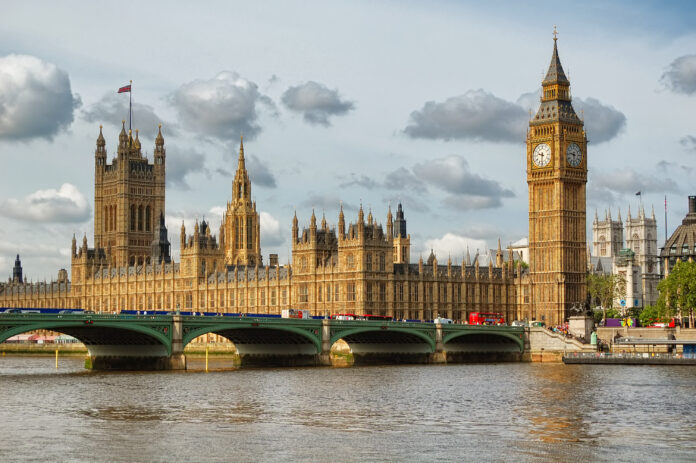The government has introduced legislation in Parliament which proposes to ban councils from boycotting Israel.
The Levelling Up, Housing and Communities Secretary Michael Gove, who is fiercely pro-Israel, has said that “disruptive” campaigns to boycott Israel lead to “appalling” antisemitic rhetoric and abuse.
Under the Bill, any offenders would face “significant” fines, while ministers will be given powers to launch investigations into suspected breaches of the ban.
The Bill will have to go through several readings in Parliament before it becomes law.
The Boycott, Divestment and Sanctions (BDS) movement is an international campaign that calls for organisations and individuals to pressure Israel by cutting off its economic and cultural ties to the rest of the world.
At an event held this week by the Israeli embassy, trade secretary Kemi Badenoch also emphasised the government’s commitment to the Bill.
“This government will ban public bodies from pursuing boycott, divestment and sanctions activities,” she said. “We will ban those activities, including at universities and local authorities.”
Subscribe to our newsletter and stay updated on the latest news and updates from around the Muslim world!
Leicester, Swansea and Gwynedd councils have all previously passed motions to boycott produce from “illegal Israeli settlements in the West Bank, until such time as Israel complies with international law and withdraws from Palestinian-occupied territories.”
Meanwhile, a group of 70 civil society organisations, including the Muslim Association of Britain, the Palestine Solidarity Campaign, the Palestinian Forum in Britain and Friends of Al Aqsa have signed a statement opposing the bill.
They say: “As a group of civil society organisations made up of trade unions, charities, NGOs, faith, climate justice, human rights, cultural, campaigning, and solidarity organisations, we advocate for the right of public bodies to decide not to purchase or procure from, or invest in companies involved in human rights abuse, abuse of workers’ rights, destruction of our planet, or any other harmful or illegal acts. We therefore oppose the government’s proposed law to stop public bodies from taking such actions.
“The government has indicated that a main intention of any legislation is to ensure that public bodies follow UK foreign policy in their purchasing, procurement, and investment decisions, particularly relating to Israel and Palestine. We are concerned that this would prevent public bodies from deciding not to invest in or procure from companies complicit in the violation of the rights of the Palestinian people. We affirm that it is the right of public bodies to do so, and in fact a responsibility to break ties with companies contributing to abuses of rights and violations of international law in occupied Palestine and anywhere else where such acts occur.

“From bus boycotts against racial segregation to divestment from fossil fuel companies to arms embargoes against apartheid, boycott, divestment, and sanctions campaigns have been applied throughout history to put economic, cultural, or political pressure on a regime, institution, or company to force it to change abusive, discriminatory, or illegal policies. If passed, this law will stifle a wide range of campaigns concerned with the arms trade, climate justice, human rights, international law, and international solidarity with oppressed peoples struggling for justice. The proposed law presents a threat to freedom of expression, and the ability of public bodies and democratic institutions to spend, invest and trade ethically in line with international law and human rights.
“We call on the UK government to immediately halt this bill, on opposition parties to oppose it and on civil society to mobilise in support of the right to boycott in the cause of justice.”
The BDS movement was initiated in 2005 by various Palestinian civil society organisations and has gained international attention and support.
The movement advocates for three main strategies:
- Boycott: Supporters of BDS call for a boycott of Israeli products, cultural and academic institutions, and businesses believed to be complicit in Israel’s policies towards Palestinians. The goal is to create economic pressure on Israel and raise awareness about the situation.
- Divestment: The movement encourages divestment from companies and organisations that are involved in or support Israeli settlements, the construction of the Israeli separation barrier, or other activities deemed harmful to Palestinians. The aim is to exert financial pressure and discourage investment in such entities.
- Sanctions: BDS supporters advocate for governmental sanctions against Israel to hold it accountable for its perceived violations. These can include diplomatic, economic, and military sanctions, with the intention of pressuring the Israeli government to change its policies.























